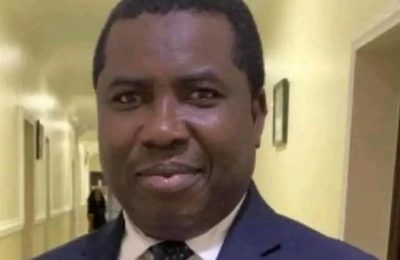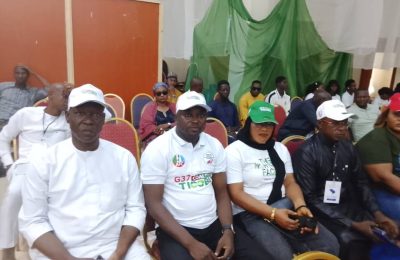*By Jerome Aduojo Agi, Ph.D.*
Nigeria, Africa’s most populous nation and the largest Black country in the world, marks 65 years of independence with mixed feelings of pride, resilience, and challenges. Since its amalgamation in 1914, Nigeria has stood as a beacon of hope for Africa, endowed with vast natural resources, rich cultural diversity, and a people known for their hospitality, perseverance, and ingenuity. This article explores Nigeria’s historical trajectory, its position as the “Giant of Africa,” its socio-economic strengths, challenges of governance, insecurity, and leadership failures. It also examines Nigeria’s contributions to Africa and the world, including its peacekeeping role, humanitarian generosity, and potential as a global economic hub. The article argues that Nigeria deserves a permanent seat at the United Nations Security Council and outlines pathways for governance reforms, economic revitalization, infrastructural development, and national unity. It concludes with recommendations on repositioning Nigeria for global relevance and sustainable development.
Nigeria’s story is one of paradoxes—abundant natural wealth and persistent poverty, resilience amidst hardship, and unity forged from diversity. From the colonial amalgamation of the Northern and Southern Protectorates in 1914, to independence in 1960, and through decades of democratic experiments and military rule, Nigeria has remained central to Africa’s political, cultural, and economic narrative. Sixty-five years after independence, the nation stands at a critical juncture, where it must address pressing governance failures, security crises, and infrastructural decay while maximizing its potential as a global powerhouse.
*HISTORICAL PATH AND AMALGAMATION*
The amalgamation of 1914 by Lord Frederick Lugard brought together over 250 ethnic groups and diverse cultures under one colonial entity. Despite criticisms of forced unity, this event laid the foundation for Nigeria’s destiny as a united, multi-ethnic, and resource-rich nation. The founding fathers—Dr. Nnamdi Azikiwe, Sir Ahmadu Bello, Chief Obafemi Awolowo, Sir Abubakar Tafawa Balewa, Sir Macaulay, Chief Anthony Enahoro, among others—envisioned a Nigeria that would not only lead Africa but also contribute meaningfully to global peace and progress.
*THE GREATNESS OF NIGERIA IN AFRICA AND THE WORLD*
Nigeria is often called the “Giant of Africa” due to its demographic strength of over 220 million people, its leadership in regional diplomacy, and its immense contributions to peacekeeping missions across Africa and beyond. As the world’s sixth-largest exporter of crude oil and holder of the ninth-largest natural gas reserves, Nigeria wields considerable economic and energy potential. It has also played a big-brother role to African nations, providing refuge, financial aid, and military support in times of crisis, from Liberia to Sierra Leone, Sudan, and The Gambia.
*NATURAL RESOURCES AND TOURISM OPPORTUNITIES*
Nigeria is richly blessed with natural resources—oil, gas, coal, limestone, gold, tin, columbite, gemstones, and fertile agricultural land. Historically, Nigeria thrived on its agricultural exports, including groundnut pyramids in Kano, cocoa in the West, palm oil in the East, and cotton in the North. The nation’s tourism potential is immense: the Yankari Game Reserve, Obudu Cattle Ranch, Olumo Rock, Osun Sacred Grove (UNESCO site), and the vast Niger Delta waterways remain underutilized treasures that could drive diversification and global tourism inflows, the National Parks and Tourism Board need to be re-positioned, revitalized, re-awaken and re-activated for effective and profitable services .
*THE NIGERIAN PEOPLE:
CHARACTER AND LIFESTYLE*
Nigerians are renowned worldwide for their resilience, optimism, and creativity. Hospitality, perseverance, patience, and hardworking spirit define their daily lives. From Nollywood—the world’s second-largest film industry—to Afrobeat that dominate global charts, Nigerians export culture, joy, and creativity. Despite adversities, the people embody unity in diversity, demonstrating love, generosity, and kindness both at home and abroad.
*CHALLENGES: LEADERSHIP FAILURES AND GOVERNANCE CRISIS*
Nigeria’s greatness has been stunted by chronic governance failures, corruption, weak institutions, and insecurity. Insurgency by Boko Haram, banditry, Fulani-herder and their hired militia conflicts with host communities , kidnappings, ritual killings, and destruction of farmlands threaten peace and stability. Infrastructure deficits—unreliable electricity, poor road networks, inadequate health care, and neglected rail systems—compound economic stagnation. The Ajaokuta Steel Industry remains in comatose state, symbolizing wasted potential and opportunities.
*THE HARDSHIP IN A LAND OF ABUNDANCE*
Despite abundant oil revenues, solid minerals, and fertile farmlands, many Nigerians live in poverty. Unemployment, inflation, and poor governance have deepened the suffering of citizens who inhabit a land flowing with “milk and honey.” This paradox underscores the need for structural reforms and visionary leadership.
*NIGERIA’S ROLE IN AFRICA AND THE WORLD*
Nigeria’s sacrifices for Africa are unmatched—funding the liberation struggles of Southern Africa, leading peacekeeping missions, and hosting refugees. As the world’s largest Black nation, Nigeria’s voice carries weight in shaping global discourse. This moral and strategic responsibility makes the case for Nigeria to occupy a permanent seat on the UN Security Council, representing Africa’s interests.
*THE ROAD AHEAD: REVIVING NIGERIA’S POTENTIALS*
1. *Natural Resources:* Diversify beyond crude oil; revive agriculture (cocoa, cashew, cassava, palm oil, fishing, livestock). Unlock the mining sector for solid minerals and precious stones.
2. *Tourism* : Invest in wildlife reserves, monuments, and cultural heritage, Parks .
3. *Infrastructure* : Rebuild railroads for rural-urban trade, modernize seaports, revive postal and maritime transport.
4. *Industrialization:* Operationalize Ajaokuta Steel Plant as a backbone of industrial growth.
5. *Governance* : Electoral reforms, standardized political party financing, independent judiciary, and stronger legislative oversight.
6. *Security* : Modernize military intelligence, foster community policing, and tackle root causes of banditry and insurgency.
7. *Social Development:* Expand access to electricity, water, health care, and education, especially, Technical Schools, Skills Acquisition Training Centres etc .
8. *International Positioning:* Strengthen diplomacy, leverage the African Continental Free Trade Area (AfCFTA), and push for global governance reforms.
*BEST GOVERNMENT SYSTEM FOR NIGERIA*
A true federal system—with devolution of powers to states and local governments—offers Nigeria the best path forward. This ensures accountability, resource control, and tailored development. Strong judiciary and legislative reforms are indispensable to entrenching rule of law and democratic accountability.
*CONCLUSION*
At 65, Nigeria stands at a crossroads. It can either remain trapped in cycles of waste and misgovernance or rise to fulfill its destiny as Africa’s leader and a global economic hub. With visionary leadership, institutional reforms, security stabilization, and resource revitalization, Nigeria can truly become the pride of Africa and an indispensable voice in the world order.
*REFERENCES*
Achebe, C. (1983). The trouble with Nigeria. Enugu: Fourth Dimension.
Falola, T., & Heaton, M. M. (2008). A history of Nigeria. Cambridge: Cambridge University Press.
Osaghae, E. E. (1998). Crippled giant: Nigeria since independence. Indiana University Press.
Suberu, R. T. (2001). Federalism and ethnic conflict in Nigeria. Washington, DC: United States Institute of Peace Press.
United Nations Economic Commission for Africa. (2020). Nigeria country profile. Addis Ababa: UNECA.




